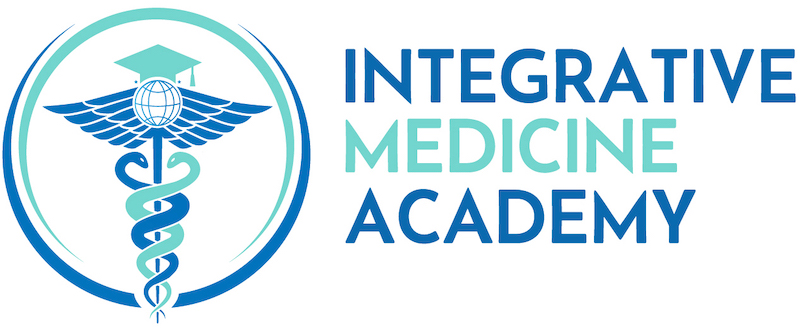Dr. Woeller’s 4 Pillar Approach to Autism-Spectrum Disorders
The 4 pillars are key to creating a foundation for helping this population of people.
Individuals on the autism-spectrum, whether they are a child, teenager, or adult often suffer with a number of co-morbid conditions. These conditions can range from mild to moderate allergies, digestive problems, sleep disturbances, and headaches to severe cognitive, social engagement, and behavioral problems triggered or exacerbated by a myriad of severe underlying medical issues including those listed here. There is no secret that medical problems in the autism-spectrum community are well documented, and even the Centers for Disease Control (CDC) in the United States references these co-morbid conditions as an emphasis for autism intervention.
The point is many individuals on the autism-spectrum need help, including their parents or care-givers who struggle to provide care despite a medical community that for the most part has turned a blinds eye to these individual’s problems.
Even after 16 + years in practice, and the advent of integrative medicine, aka. biomedical, approach to autism-spectrum disorders some 30 years ago, along with countless research from around the world documenting the myriad of medical issues seen in the autism community, this special population is often ignored medically from the traditional medical community. This has left parents and caregivers struggling both physically and emotionally to find ways to help their loved ones anyway they can – often at great financial strain. Luckily, over the past decade more and more organizations have stepped forward to disseminate information about integrative medicine options for ASD and some physicians and health care practitioners have incorporated these methods into their practices. Unfortunately, there still are very few health practitioners with the training necessary to meet the special needs of this special community. Also, those that begin this work are often overwhelmed by the various tests, supplements, and treatment protocols promoted through conferences, books, online websites and other sources. Unfortunately, this creates confusion and a haphazard approach to clinical practice.
My 4 pillar approach to ASD helps to prioritize intervention and streamline a method for successful in implementing integrative medicine. I have spent countless hours working with patients, altering treatment plans, modifying protocols, researching therapies, attending conferences, preparing lectures and webinars, working with office staff, as well as a variety of parents in attempts to cut down on treatment failures, and increase success rates with treatment intervention. I am convinced the 4 Pillar approach is absolutely necessary to begin the process of healing for many individuals on the autism-spectrum.
The First Pillar In Treating Autism Spectrum Disorders
The first pillar is nutrition. This often includes special diets to remove offending foods that are either challenging an individual’s immune system or creating imbalances neurochemically. The most famous diet for this population is the gluten and casein-free diet which has helped thousands of special needs individuals improve their language, sleep problems, and overall cognitive challenges. However, like everything in medicine there is no one diet that fits everyone so learning how to prioritize dietary intervention is key. The bottom line is no health program can get very far if a patients nutritional intake is not improved.
The Second Pillar In Treating Autism Spectrum Disorders
The second pillar has to do with nutritional supplementation. Many individuals on the autism-spectrum are often deficient nutrients as confirmed by blood sampling for vitamins, minerals and amino acids. Iron anemia for example has been seen quite frequently and can be a contributing factor to sleeping problems. Also, because of sensory processing problems and motor coordination imbalances food intake can be troublesome with some people self-limiting their diet based on smell and texture. It is not uncommon to see ASD individuals have a very narrow choice of foods they will eat. Therefore, nutritional supplements are essential to replenish these lost nutrients. However, it is important to use certain nutrients that are tailored to their special needs as well as many ASD people have sensitivity to food additives and other ingredients. Finally, you need to know when it is okay to add certain supplement based on the underlying health of the individual. For example, many ASD people have digestive problems exacerbated by chronic yeast and bacteria imbalances which can be aggravated by certain nutritional products.
The Third Pillar In Treating Autism Spectrum Disorders
The third pillar focuses on digestive health, particularly with regards to chronic yeast and bacteria problems. Chronic candida has long been associated with problems in the chronic fatigue and fibromyalgia community, but special needs individuals are uniquely sensitive to the toxins from candida as well. There are telltale signs of yeast overgrowth in ASD individuals, especially children that absolutely need to be recognized and addressed if any type of integrative medicine program is going to have success. Also, clostridia and other bacteria produce toxins that are known to adversely affect brain chemistry leading to language, cognitive and behavioral problems. These infectious organisms along with a myriad of other digestive problems such as constipation, diarrhea, food sensitivities, etc. are at the center of underlying medical issues prevalent in this community of individuals.
The Fourth Pillar In Treating Autism Spectrum Disorders
The fourth pillar has to do with methylation biochemistry. Methylation is a central biochemical function that influences all body systems. In autism-spectrum disorders there are a number of methylation defects that are known to alter language and social awareness. Also, methylation problems negatively influence immune health, detoxification, and cardiovascular function. The implementation of methylation therapy such as methylcobalamin, aka. Methyl-B12 has been tremendously helpful for many ASD individuals and is a cornerstone therapy in the integrative medicine approach.
There are many wonderful integrative medicine therapies available to us as health practitioners to help the different types of individuals we work with. When it comes to integrative medicine for autism-spectrum disorders the myriad of therapies useful for other health disorders may be applicable as well. What is important from my clinical experience in working with this unique population of people is knowing when to intervene, with what, and how much. My 4 Pillar Approach helps to prioritize what is important initially, and in what sequence to start things. Doing so will not only improve clinical outcome for your patients and clients, but also decrease wasted time in doing things that don’t work or out of desired order.

